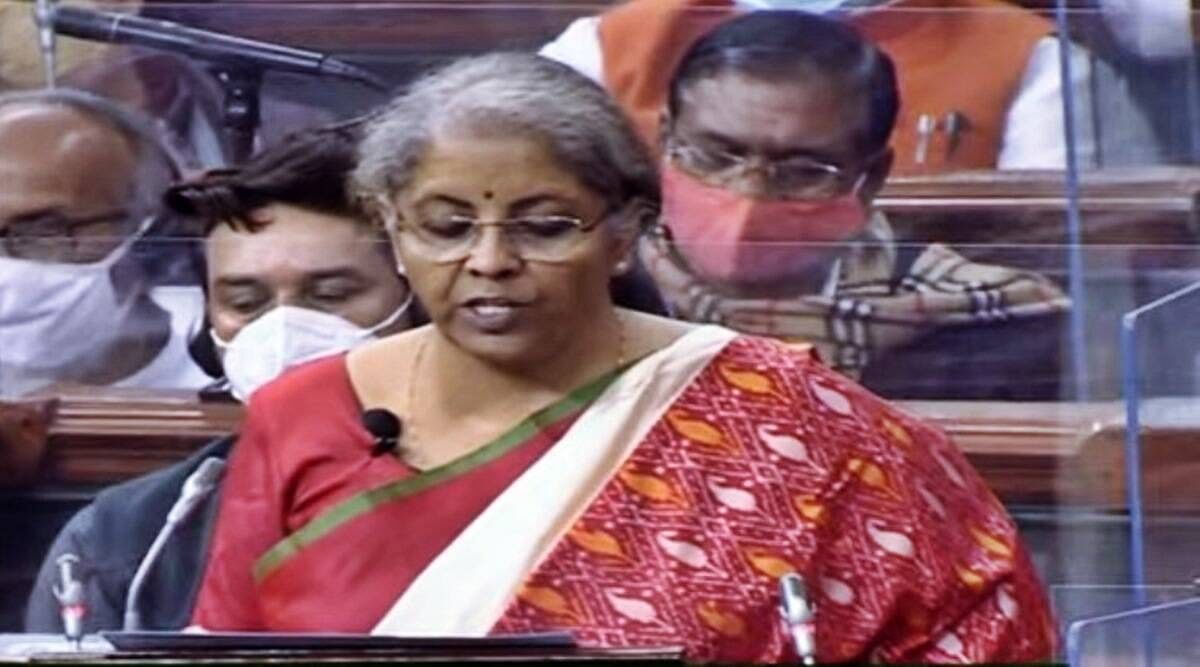According to the budget presented by Finance Minister Nirmala Sitharaman today in the parliament, Rs 30,757 crore has been allocated to Jammu and Kashmir and Rs 5,958 crore for Ladakh — the two newly created Union Territories.
The Ministry of Home Affairs has been allocated Rs 1,66,546.94 crore for the next fiscal with Rs 1,03,802.52 crore for the central armed police forces like the CRPF, BSF, CISF etc. and Rs 3,768.28 crore for census operations. The work for the census 2021 has been postponed due to the coronavirus pandemic.
Central sector schemes and projects of the MHA got Rs 1,641.12 crore, while Rs 481.61 crore has been allocated for disaster management. The Union Territories of Andaman and Nicobar Islands has been allocated Rs 5,317.41 crore, Chandigarh Rs 4,661.12 crore, Dadra and Nagar Haveli and Daman and Diu Rs 2,204.59 crore, Lakshasweep Rs 1,440.56 crore and Puducherry Rs 1,729.79 crore.
Tax devolution
Meanwhile, the 15th Finance Commission has recommended that states, along with Ladakh and J&K, be given 42 per cent share in the divisible tax pool of the centre during the period 2021-22 to 2025-26.
The panel’s report also provides a range for fiscal deficit and debt path of both the union and states. It further recommended additional borrowing room to states based on performance in power sector reforms.
Excluding the union territories of Ladakh and J&K, the tax devolution share suggested by the Finance Commission is 41 per cent of the total divisible pool, which is arrived at after deducting cesses and surcharges and cost of collection from total tax collection.
Finance Commission is a constitutional body that gives suggestions on centre-state financial relations.
The report of the 15th Finance Commission was tabled in Lok Sabha by Finance Minister Nirmala Sitharaman.
In order to maintain predictability and stability of resources, especially during the pandemic, the 15th Finance Commission has recommended “maintaining the vertical devolution at 41 per cent – the same as in our report for 2020-21,” an official statement said.
It is at the same level of 42 per cent of the divisible pool as recommended by the 14th Finance Commission, the statement said, adding that, however, a required adjustment has been made of “about 1 per cent due to the changed status of the erstwhile state of Jammu and Kashmir into the new union territories of Ladakh and Jammu and Kashmir”.
As per the glide path, fiscal deficit should be 6 per cent in 2021-22, 5.5 per cent in 2022-23, 5 per cent in 2023-24, 4.5 per cent in 2024-25, and 4 per cent in 2025-26. Addressing a post-budget press conference, Finance Minister Sitharaman said the tax devolution share was brought to 41 per cent even this year after Jammu & Kashmir and Ladakh was formed.
“…When the state becomes a UT, the funding of the UT is with the centre… So 42 per cent was brought down to 41 per cent; and to that extent because it was recognised as a union territory. The centre has been given the responsibility to fund it,” she said.
The panel, headed by former bureaucrat N K Singh, had in November last year submitted its report titled “Finance Commission in COVID Times” to President Ram Nath Kovind.
The gross tax revenue for a five-year period is expected to be Rs 135.2 lakh crore. Out of that, divisible pool is estimated to be Rs 103 lakh crore, as per the commission. States’ share at 41 per cent of divisible pool comes to 42.2 lakh crore for 2021-26 period.
“Including total grants of Rs 10.33 lakh crore and tax devolution of Rs 42.2 lakh crore, aggregate transfers to states is estimated to remain at around 50.9 per cent of the divisible pool during 2021-26 period,” it said.
Total transfers (devolution + grants) constitutes about 34 per cent of estimated gross revenue receipts of the union leaving adequate fiscal space for the union to meet its resource requirements and spending obligations on national development priorities, the commission added.
The commission was asked to give its recommendations on wide-ranging issues. Apart from tax devolution, the commission was asked to recommend performance incentives for states in many areas like power sector, adoption of DBT and solid waste management as well as funding mechanism for defence and internal security. This report has been organised in four volumes. Volume I and II, as in the past, contain the main report and the accompanying annexes. Volume III is devoted to the union government and examines key departments in greater depth, with the medium-term challenges and the road map ahead. Volume IV is entirely devoted to states.
The report provided range for fiscal deficit and debt path of both the Union and states. It also recommended additional borrowing room to states based on performance in power sector reforms.
In view of the uncertainty that prevails at the stage that the 15th Finance Commission has done its analysis, as well as the contemporary realities and challenges, “we recognise that the FRBM Act needs a major restructuring and recommend that the time-table for defining and achieving debt sustainability may be examined by a High-powered inter-governmental group,” the statement said.
This high-powered group can craft the new FRBM (Fiscal Responsibility and Budget Management Act) framework and oversee its implementation, it added. It suggested that the union and state governments amend their FRBM Acts, based on the recommendations of the group, so as to ensure that their legislations are consistent with the fiscal sustainability framework put in place. This group could also be tasked to oversee the implementation of the 15th Finance Commission’s diverse recommendations. State governments may explore formation of independent public debt management cells which will chart their borrowing programme efficiently, it added.






